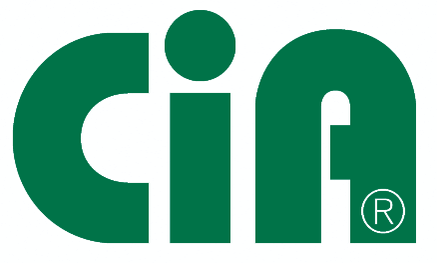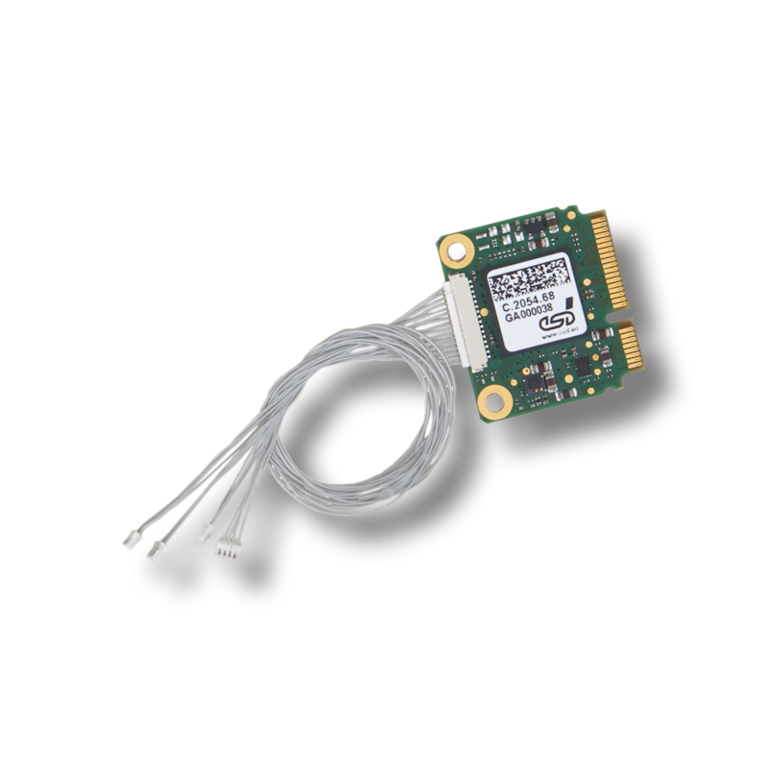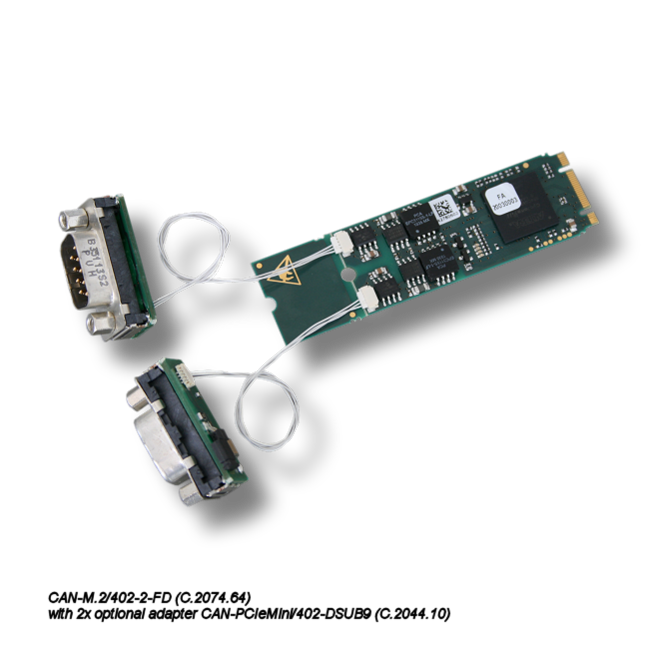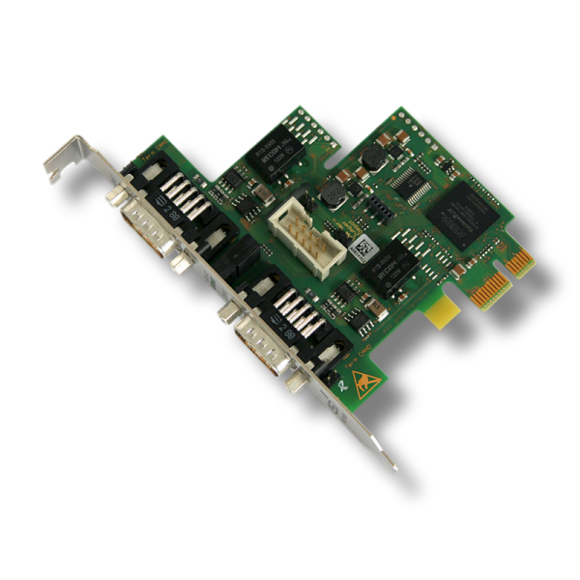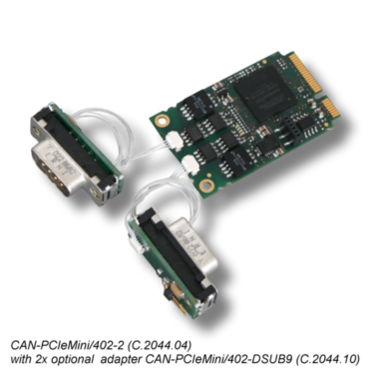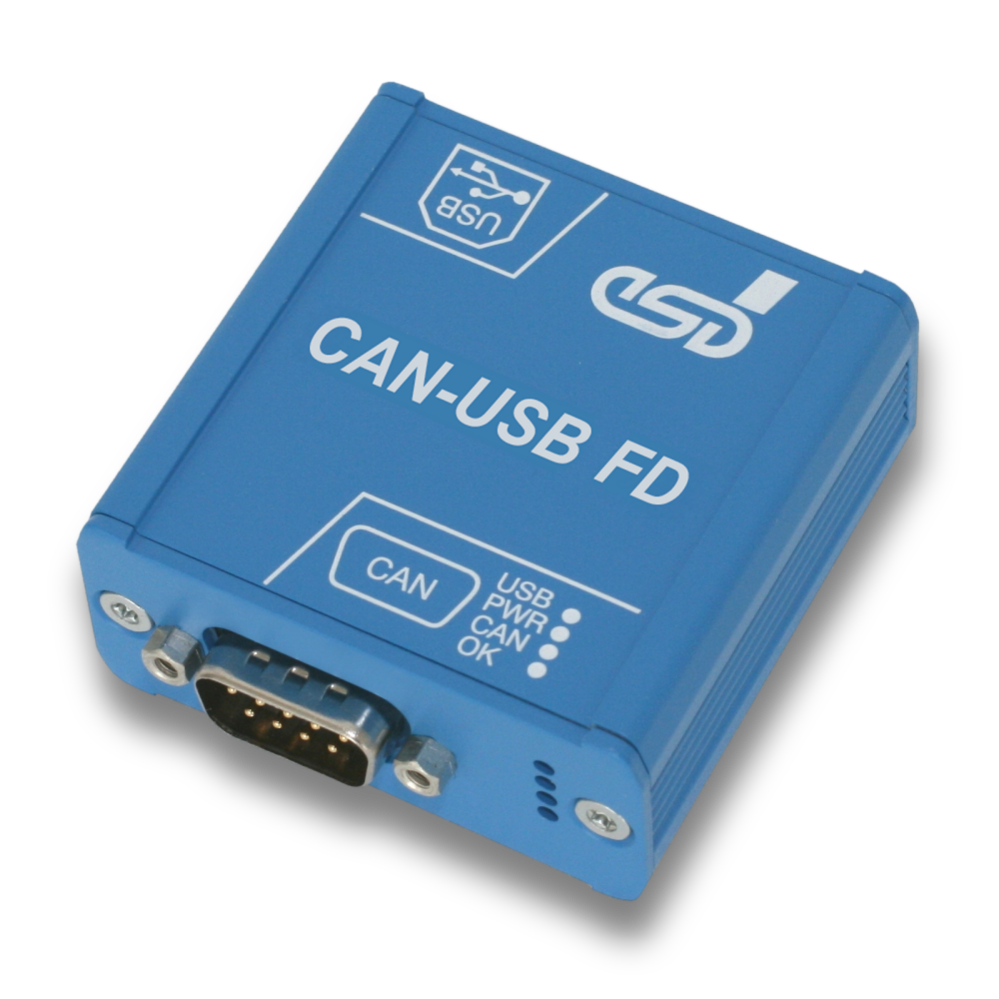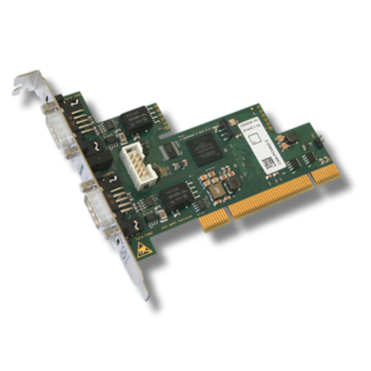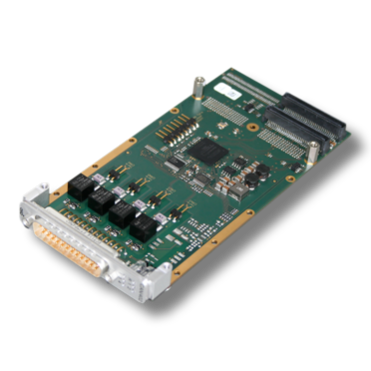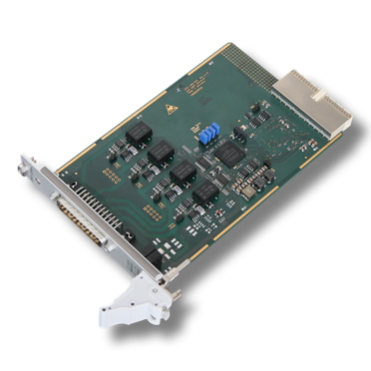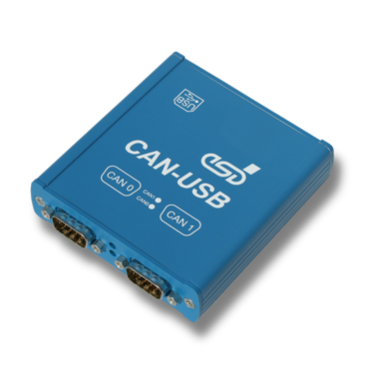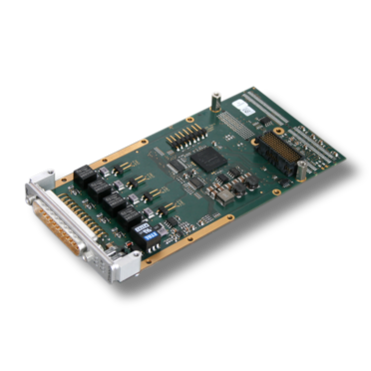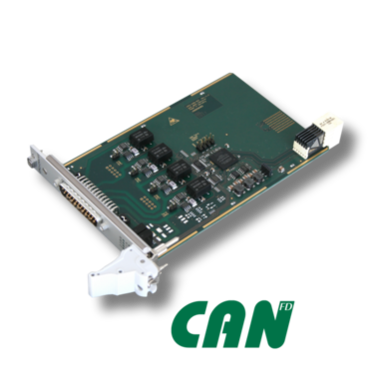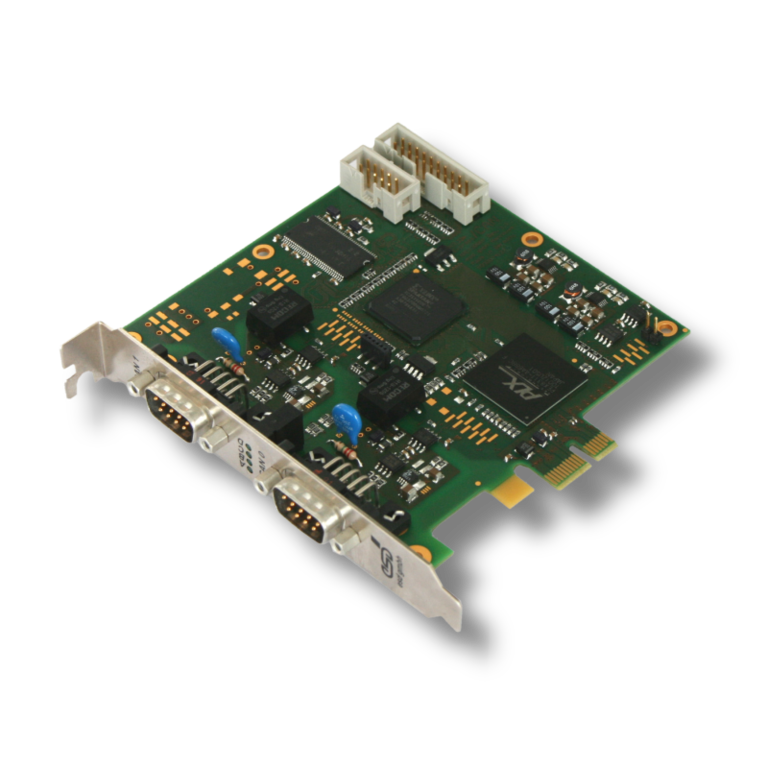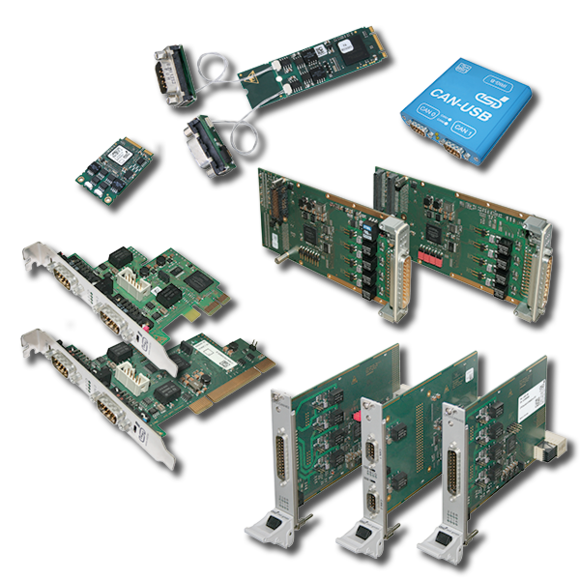
Due to its high data security, the CAN bus has also established itself outside of the automobile after its introduction by Bosch in 1986 and has long been used in commercial vehicles, industrial automation, mechanical engineering, medical technology and aerospace as well as in safety-relevant areas. Further development to CAN FD (Flexible Data Rate) and standardization in ISO 11898-1:2015 has paved the way for high-performance CAN FD applications with speeds of up to 10 Mbit/s and 64 bytes of user data.
CAN FD is particularly suitable where better performance is to be achieved in closed machine units with little effort: With the same cabling and infrastructure, up to 8 times higher data throughput can be achieved. esd electronics has recognized this advantage and offers CAN FD-capable variants for all common form factors and designs in addition to the classic CAN interface cards. The current models, which are implemented with the IP CAN controller esd Advanded CAN Controller (esdACC) in an FPGA, enable additional diagnostics with the help of esd CAN Error Injection and particularly high performance due to DMA functionality even with multiple channels. Drivers with a uniform API, BSPs and higher layer protocols such as CANopen, J1939 and ARINC 825 are already available for Windows, Linux and numerous real-time operating systems such as QNX and VxWorks.
CAN and CAN FD Modules with different Form Factors
esd electronics is constantly expanding its CAN FD product range. With the new product variants CPCIserial-CAN/402, XMC-CAN/402 and PMC-CAN/402, as well as the CAN-PCIe/402, the CAN-M.2/402 and the CAN-PCIeMini/402 and additionally the CAN-USB/400 module, interfaces in different form factors and also fancy form factors with CAN FD capable interfaces are available. An overview of these variants can be found at the end of this page.
esdACC CAN IP Core
All esd CAN FD interfaces use the high performance esd Advanced CAN Core (esdACC) implemented in an Intel® FPGA. This allows the boards to support bus mastering and to initiate write cycles to the host CPU RAM, independent of the CPU or the system DMA controller. This reduces host CPU load and overall latency. The CAN messages are linked to a high-resolution 64-bit hardware timestamp.
The evolution to CAN FD provides performance improvements through higher data throughput, while maintaining the advantages of classic CAN. Due to the backward compatibility to CAN, CAN FD modules can be integrated into existing systems at an early stage. This makes it possible to migrate effortlessly to the advantages of CAN FD at a later date.
Involved in the further Development of CAN since its Invention
esd electronics has CAN experience since 1990 and is a founding member of CiA® (CAN in Automation e.V.). We participate in the technical committees of the association and regularly attend the plugfests to ensure interoperability with other manufacturers. This way we are always up to date with the latest developments and can offer products with the most current features.
Trainings and Workshops
Thanks to our many years of experience and highly qualified experts in the field of CAN, we can also solve technically challenging tasks. We are happy to pass on our expertise and, if required, offer our customers and interested parties workshops and training courses on CAN and its optimal use in specific environments. Please do not hesitate to contact us.
esd electronics is a founding member of the CAN in Automation Nutzerorganisation e.V. (CiA®).

esd electronics has been a member of ODVA since 1998.



